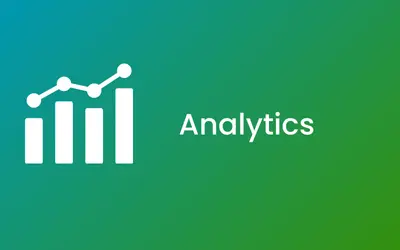If you're looking to start a career in data analytics, taking an analytics course in Austin is a great place to start. Austin, Texas, is home to many reputable universities and institutions that offer a wide range of data analytics courses. Why choose an analytics course in Austin? Austin has a thriving tech industry, with many companies specializing in data analytics. This means that there is a high demand for professionals with data analytics skills in the area. By taking an analytics course in Austin, you'll have access to a wide range of job opportunities, both in the tech industry and in other industries that require data analysis. Austin is also a great place to study. The city is known for its vibrant and diverse culture, and there are many attractions and activities to enjoy outside of class. Additionally, the cost of living in Austin is relatively low compared to other tech hubs like San Francisco and New York City. What courses are available in Austin? Here are just a few examples of the analytics courses available in Austin: 1. The University of Texas at Austin offers several data analytics courses through its McCombs School of Business. These courses cover topics like data visualization, machine learning, and predictive modeling. The school also offers a certificate in business analytics. 2. The St. Edward's University offers a Master of Science in Data Science and Analytics program, which covers topics like statistics, machine learning, and data mining. The program is designed to prepare students for careers in data analytics, with a strong focus on practical skills. 3. The University of Texas at Austin also offers a Data Analytics Boot Camp in partnership with Trilogy Education Services. This six-month program covers topics like data analysis, data visualization, and SQL. The program is designed for people with no prior experience in data analytics who want to learn practical skills quickly. 4. Austin Community College offers a Data Analytics Certificate program, which covers topics like statistical analysis, data interpretation, and database management. The program is designed to prepare students for entry-level positions in data analytics. What are the benefits of taking an analytics course? Taking an analytics course in Austin has many benefits, including: 1. Developing practical skills: Analytics courses are designed to prepare students for careers in data analytics by teaching them practical skills that are in demand in the industry. These skills include data visualization, statistical analysis, and machine learning. 2. Career opportunities: The demand for data analytics professionals is high, and many industries are starting to incorporate data analytics into their operations. By taking an analytics course, you'll be well positioned to take advantage of these job opportunities. 3. Networking opportunities: Taking an analytics course in Austin gives you the opportunity to connect with other students and professionals in the industry. This can help you build your professional network and find job opportunities. Conclusion If you're interested in starting a career in data analytics, taking an analytics course in Austin is a great place to start. The city has a thriving tech industry and many reputable institutions that offer data analytics courses. By taking a course, you'll develop practical skills, gain access to job opportunities, and build your professional network.

₹60,000


Watch how students, freshers, and professionals transformed their careers with Skillfloor's Analytics Courses Reviews
Hurry Up!
Limited seats call us now for amazing discounts on Analytics Courses course



Skillfloor is a Government-Recognized Skill Development Institute under Startup India (DPIIT), offering career-focused certification programs in Analytics, Artificial Intelligence (AI), Data Science, Digital Marketing, SEO, and related domains. As one of India's largest training institutes, our courses emphasize hands-on projects, expert mentorship, and skills aligned with real hiring needs. With flexible learning options - online, offline, and hybrid, plus 100% scholarships for selective students, we make quality, job-ready education accessible.
Explore the program that aligns with your goals and take the next step with Skillfloor.



- Overview of data analysis and its importance in business
- Types of analytics: Descriptive, Predictive, Prescriptive
- Role of data in decision-making processes
- Introduction to common tools: Tableau, PowerBI, Excel
- Ethical considerations in data collection and analysis
- Data sources: Primary and secondary data
- Data collection methods (surveys, web scraping, databases)
- Data cleaning techniques (handling missing values, outliers)
- Data transformation and feature engineering
- Data storage concepts (structured vs. unstructured data)
- Descriptive statistics: Mean, median, mode
- Data visualization basics (histograms, scatter plots)
- Identifying data patterns and trends
- Outlier detection and handling methods
- Correlation and causation analysis
- Inferential statistics and probability theory
- Hypothesis testing (t-tests, chi-square tests, ANOVA)
- Measures of central tendency and variability
- Confidence intervals and margin of error
- Regression analysis: Linear and logistic regression
- Principles of effective data visualization
- Types of charts and their uses (bar, line, pie, heatmaps)
- Designing dashboards for different audiences
- Interactive visualization techniques
- Data storytelling for impactful presentations
- Time series analysis and forecasting methods
- Clustering and segmentation analysis
- Decision trees and classification techniques
- Introduction to machine learning in business analytics
- Model evaluation and selection
- Basics of SQL for data manipulation
- Creating databases and relationships
- Aggregating data with SQL (GROUP BY, JOIN)
- Data modeling for business intelligence (star and snowflake schemas)
- Case study: Building a business model with SQL
- Connecting and preparing data in Tableau
- Creating basic visualizations (charts, maps)
- Advanced Tableau functions (LOD calculations, table calculations)
- Building interactive dashboards and stories
- Publishing and sharing visualizations on Tableau Server/Online
- Introduction to PowerBI workspace and components
- Data import and transformation with Power Query
- Data modeling and relationships in PowerBI
- Creating and customizing visualizations
- Publishing and collaborating on PowerBI Service
- Selecting a real-world dataset for analysis
- Defining business questions and objectives
- Conducting data analysis and visualization
- Presenting findings in a comprehensive dashboard
- Peer review and feedback on project